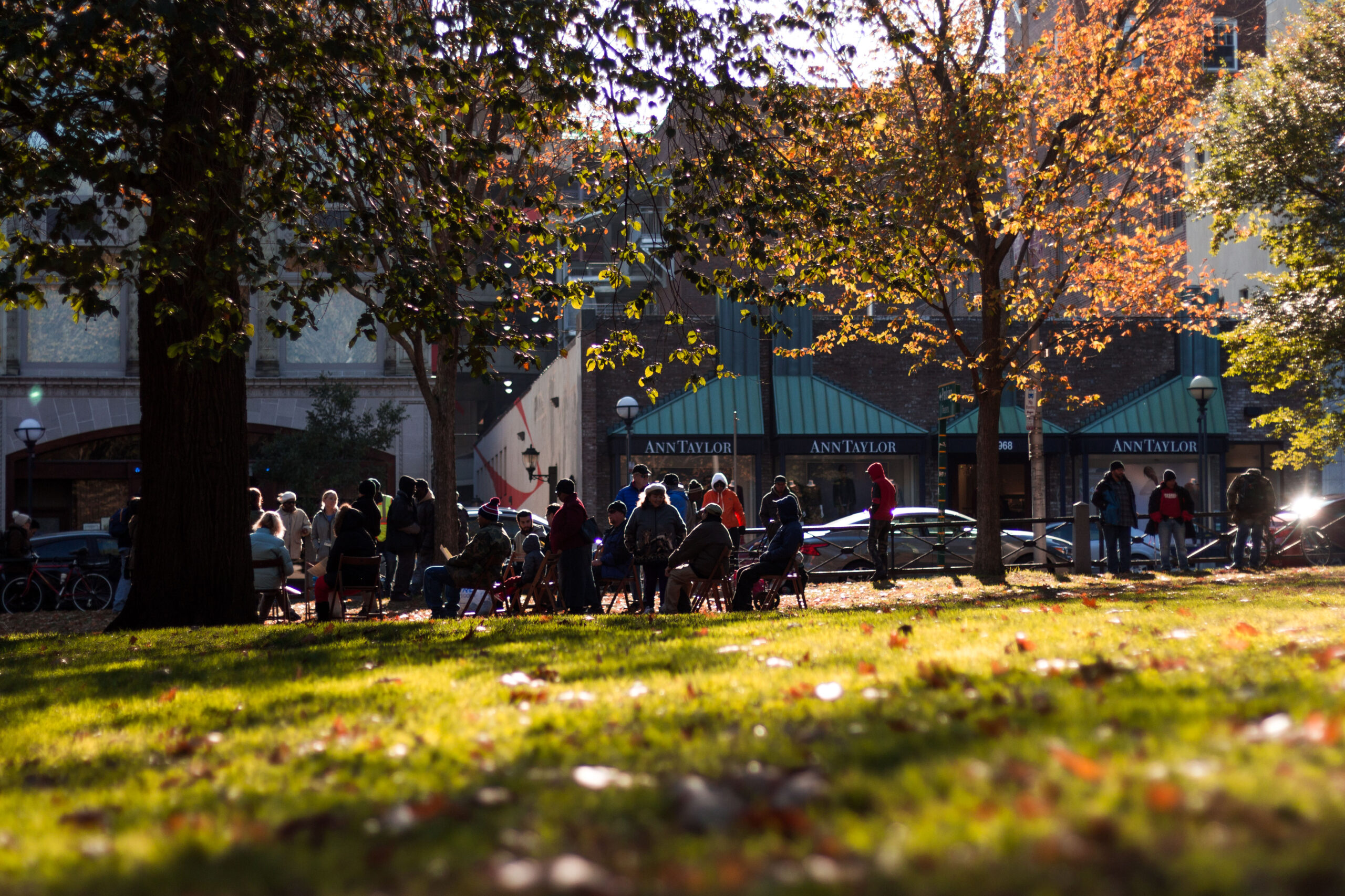$370 Million Dollars In: Is Digital Campaigning Key?
Democratic presidential candidate Kamala Harris has embraced social media as a core part of her campaign—pooling $370 million toward digital and TV advertising for the upcoming fall. Is this the new paradigm for engaging young people in politics?

Daniel Zhao, Staff Photographer
By Li Arden
It was well into the evening on Aug. 22, but the United Center arena in Chicago was practically teeming with life. The Democratic National Convention was in full-swing. Banners bearing “KAMALA” cloaked the over 20,000 seats in a deep, patriotic blue. As for the grandiose stage in the center of it all, the night bore witness to the standard medley of events: touching speeches from family members, energetic excerpts from state representatives, and…content creators?
Indeed, a vanguard group of 200 online content creators were present among the usual bevy of journalists and public figures, live-reporting DNC content and some even interviewing presidential candidate Kamala Harris herself.
With their own official section and passes, the deliberate integration of these online figures is one with the meme-centric and trendy TikTok videos that have come to encapsulate Harris’ digitally-forward methodology to campaigning. The goal of these unconventional campaigns? To reach young voters that inhabit social media.
And reach young voters she has.
“I see posts of [Kamala] like everyday,” Haley Anzures, a rising high school senior, tells the News.
Since President Biden withdrew from the presidential race and endorsed Vice President Harris in late July, the internet has been unable to forget about the latter. BidenHQ accounts were quickly renamed to KamalaHQ and revamped with the chartreuse-green countenance of the club-pop album BRAT by singer-songwriter Charli XCX–a distinctly Gen Z summer anthem. Shortly thereafter, memes and short-form content of Harris paired with trendy audios were circulated not only by the internet users that created them, but by Harris’ own account as well. Wielding online vernacular and imagery, the absurdity of a politician ostensibly being so privy to internet meme culture piqued the interest of many young people online.
Despite being a departure from the traditional social media campaigning utilized by politicians, Harris’ flashy style has been effective at garnering the attention of her intended audience— an issue her predecessors grappled with. Whereas Biden tried and failed to enrapture TikTok users with his co-opted Dark Brandon meme last year, Harris’ abundance of memes have all seemingly been successful in racking up positive engagement.
But why?
For Kory Aversa, a Chief Executive Officer of a public relations company and a content creator who was at the DNC, the reason behind this success is clear-cut: the Harris team understands younger voters and makes an effort to resonate with them through their content.
“I think the Harris team’s society is young, fresh, hip and out of the box – not corporate, not for older demographic – it’s cool and fun and you can tell it’s by younger folks for younger folks to digest,” Aversa tells the News.
In tandem with merely capturing the attention of younger voters, Harris’ social media accounts have also worked to rekindle enthusiasm by actively acknowledging them, according to Emma Smith, a rising high school junior.
“Kamala uses her social media to address issues that young people cared about and felt like were being ignored by Biden, which can definitely be revitalizing,” Smith says.
Gia, the Deputy Communications Director at the College Democrats of America, shares a similar viewpoint.
“Kamala Harris is the first candidate in recent history that has made an effort to actually listen to the younger generation,” Gia tells the News via an email. “She’s proven herself to be a candidate that centers the demands of younger people in her campaign, instead of pushing them off to the side, and the impacts have shown through her skyrocketing popularity.”
Evidently, social media can be revolutionary in forming better relationships between politicians and untapped audiences in ways that are impossible through traditional media avenues.
However, “it has its limitations as well,” expresses Jamel Franklin, a content creator who attended the DNC.
“There can be a lot of misinformation on social media,” says Franklin, “but it is up to us content creators to combat this and share factual information to the best of our abilities since more people are using it in place of mainstream news.”
Ultimately, whether you personally use social media for news or not, Harris’ campaign undeniably engenders the growing significance of social media in reporting and politics.
As Franklin puts it, “People are going to use the internet for the news regardless, so it is important that people don’t ignore it, but embrace it.”






